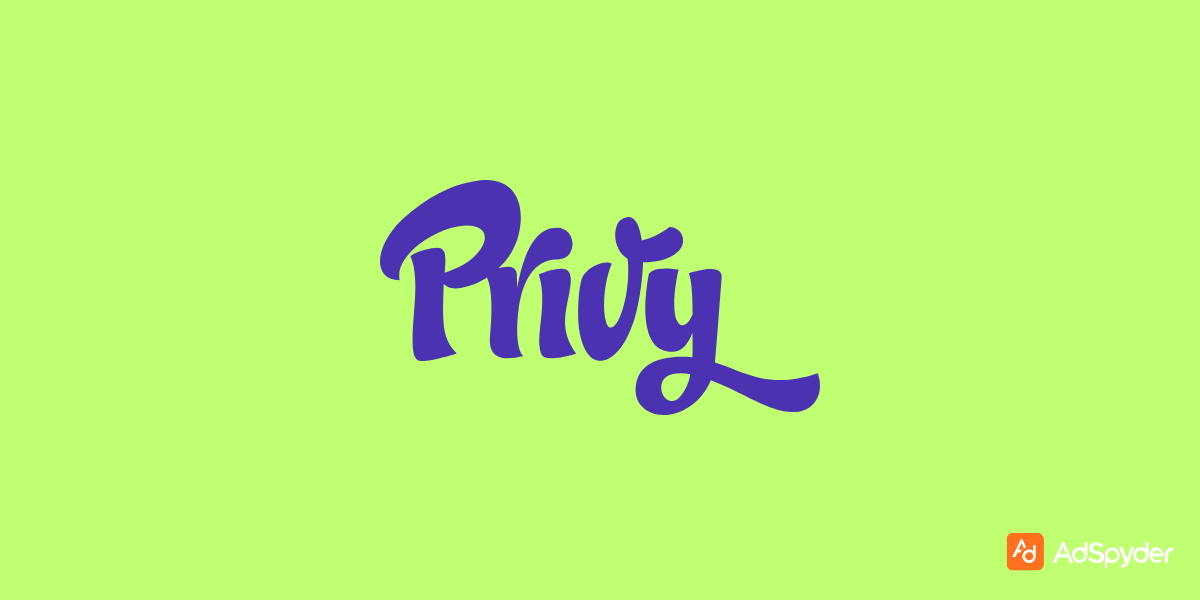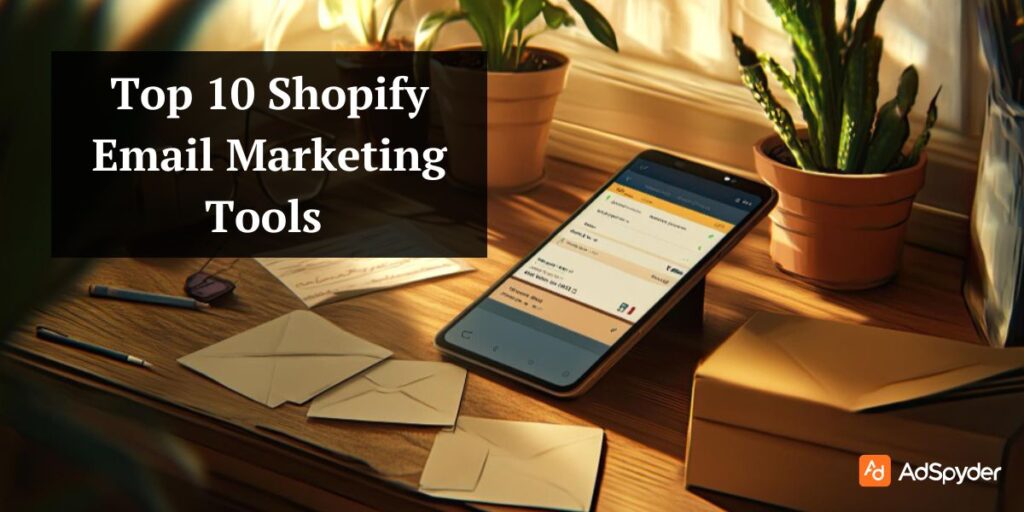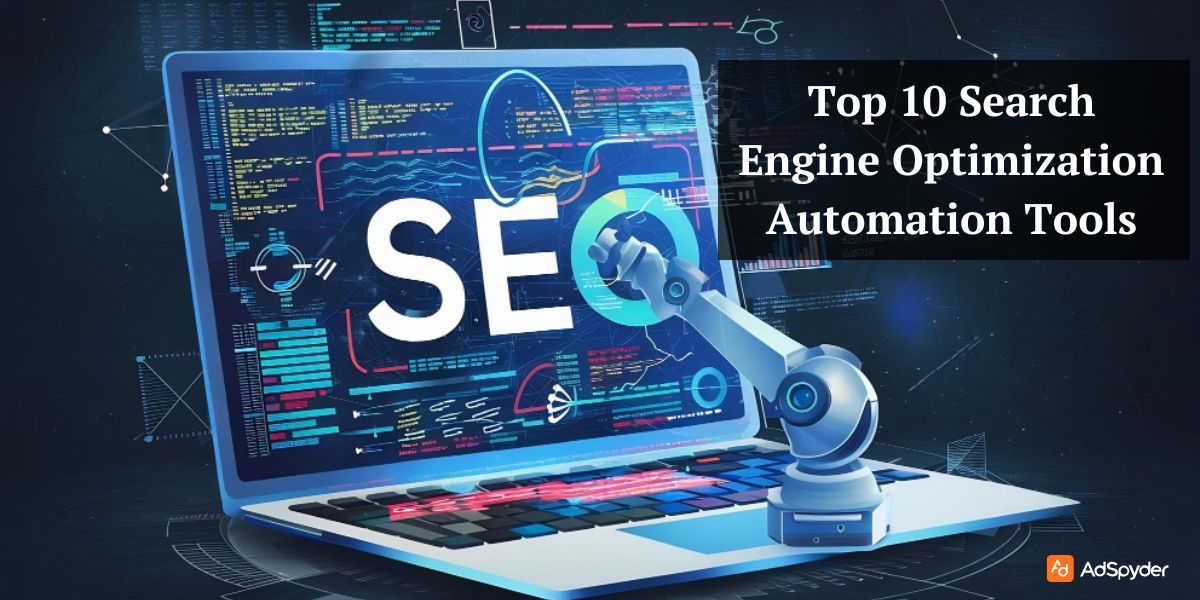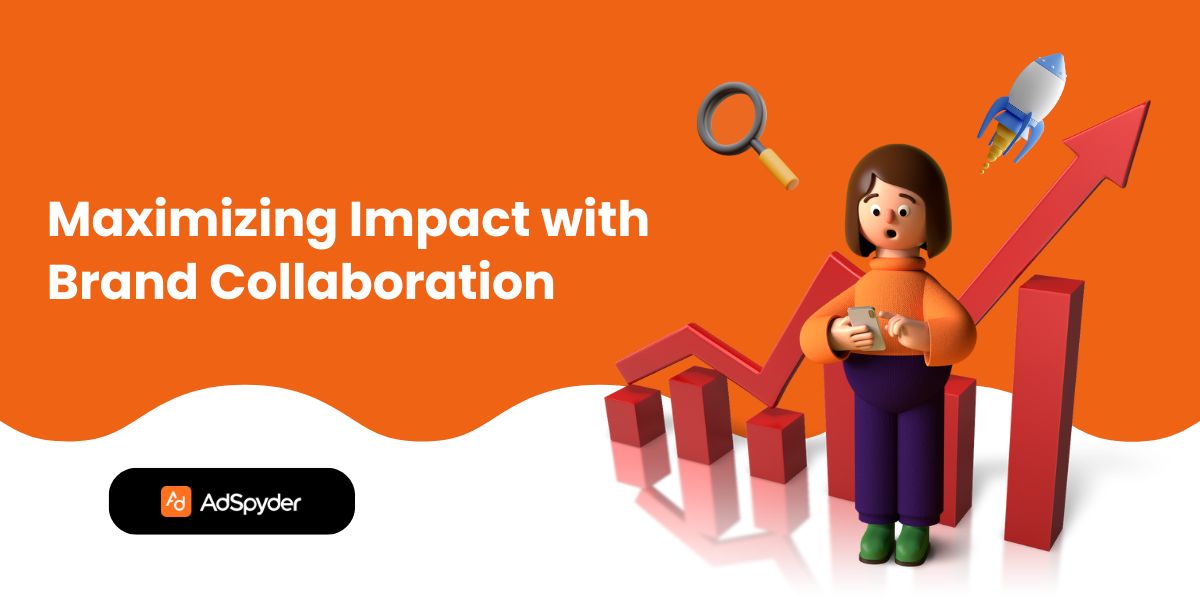Email marketing is one of the most powerful tools for e-commerce businesses. If the right tools are used, store owners of Shopify stores can create significant sales, engagement, and even loyalty. It may involve enabling the automation of follow-up emails or segmenting a customer list through behaviour. It depends on the kinds of email marketing platforms that can make a difference for a store. This blog looks into the top 10 email marketing tools for Shopify in 2025, giving an insight into features, pricing, and best use cases of each platform.
Ready to Elevate your Marketing Strategy?
Benefits of Integrating Email Marketing Tools with Shopify
| Benefit | Description |
| Seamless Product Integration | Automatically pull product details, images, and links directly into your emails. |
| Personalized Customer Experience | Use Shopify data like browsing history, purchase behavior, and cart activity for personalization. |
| Automated Email Campaigns | Automate workflows like welcome emails, abandoned cart recovery, and post-purchase follow-ups. |
| Real-Time Customer Data Sync | Sync customer data between Shopify and your email marketing tool in real-time. |
| Enhanced Segmentation | Segment audiences based on Shopify data, such as purchase history, location, or average order value. |
| Improved Abandoned Cart Recovery | Send automated reminders to customers who leave items in their cart using Shopify-triggered workflows. |
| Detailed Performance Analytics | Track key email marketing metrics like revenue generated, open rates, and click-through rates within Shopify-integrated reports. |
| Cross-Selling and Upselling Opportunities | Promote complementary or higher-value products based on past purchases. |
| Streamlined Customer Retention | Use loyalty program integrations and personalized email campaigns to re-engage past customers. |
| Scalable Marketing for Growing Stores | Handle increasing customer data and campaign volume as your Shopify store grows. |
| Seasonal and Flash Sale Promotions | Quickly create and send time-sensitive campaigns for sales, events, or holidays. |
| Integration with Third-Party Apps | Connect email marketing tools with Shopify apps for reviews, loyalty programs, and referral campaigns. |
| Easy-to-Use Templates | Access pre-designed email templates optimized for Shopify stores. |
1. Klaviyo

Klaviyo is a platform for cloud-based marketing automation.
Overview
Klaviyo is one of the foremost email marketing platforms that is simply integrated with Shopify. Such vital feature-rich automation and advanced segmentation by Klaviyo help businesses deliver personalized experiences to their customers.
Key Features
- Deep Shopify integration: Klaviyo enables automated syncing of Shopify data, such as purchase history, browsing activity, customer segments, and many more, so that highly targeted campaigns can be conducted through email.
- Advanced Segmentation: Klaviyo enables businesses to build automated lists based on consumer behaviour, purchasing patterns, and lifecycle stages.
- Automation: Klaviyo has pre-designed templates for pretty much all of your automation workflows: abandoned cart emails, welcome series, and post-purchase follow-ups.
- Analytics: The platform provides granular information about campaign performance, real-time data on open rates, click rates, and the revenue generated from each email.
Best Use Cases
Klaviyo is ideal for those Shopify stores that want to utilize data-driven email marketing. It is best for businesses with diverse products and customer demographics, where its features on segmentation and automation are highly advanced.
Pricing
Klaviyo has a free plan, which accommodates 250 contacts. However, paid plans start from $20 per month, and it progresses from there as it grows through the contacts.
Related – Top 10 Performance Marketing Tools 2025
2. Omnisend

Omnisend is a cloud-based marketing automation service that is gaining popularity among e-commerce businesses.
Overview
Omnisend is another excellent alternative for Shopify-based stores looking to really push their email marketing to higher levels. What differentiates this product is the multichannel marketing capabilities available on the platform. It supports email marketing as well as SMS and social media integration.
Key Features
- Multichannel Marketing: Users can reach out through emails, SMS, or even social media based on their needs.
- Pre-built Automation: Omnisend provides pre-built automation workflows such as abandoned cart recovery, birthday emails, and welcome series similar to Klaviyo.
- Shopify Integration: Omnisend also integrates well with Shopify while synchronizing customer information, products, and order-related information.
- Personalization: It also allows for dynamic content, product recommendations, and a personalized message using the behavior of the customer.
Best Use Cases
Omnisend is perfect for Shopify stores looking to combine the power of email marketing with other avenues like SMS and social media. It is perfect for companies looking to hit and connect across multiple channels.
Pricing
Omnisend offers its free plan with fewer features. Paid plans begin at $16/month and scale according to the number of contacts as well as the number of added features.
Check Out: Top 10 Competitor Analysis Tools
3. Privy – Top Shopify Email Marketing Tools

Privy is a comprehensive email marketing and conversion platform designed specifically to grow the customer base for eCommerce businesses and drive more sales.
Overview
Privy is perfect for Shopify store owners who intend to focus on email collection and lead generation. Although Privy is famous for its exit-intent popups and on-site displays, it also offers comprehensive email marketing features designed specifically for Shopify.
Key Features
- Exit-Intent Popups: Privy’s pop-ups collect the e-mail addresses of people who intend to leave your Shopify store, thus minimising bounce rates and increasing conversion.
- Email Marketing Automation: Privy comes with some basic features about email automation. These include abandoned cart e-mails, welcome series, and customer follow-ups.
- Segmentation: Even though not as advanced as its competitors, Klaviyo or Omnisend, Privy also offers segmentation based on past purchases by the customer or engagement.
- On-Site Display: Privy has a range of on-site tools that include banners, spin-to-win pop-ups, and flyouts, which can help get customers to interact and collect emails.
Best Use Cases
Privy is ideal for Shopify stores primarily looking to grow their email list and convert visitors into subscribers. It’s also excellent for small to mid-sized businesses that need basic levels of email marketing automation.
Pricing
Privy offers a free plan with limited features. Paid plans start at $15/month to access more advanced email marketing tools, as well as on-site display options.
4. Active Campaign

ActiveCampaign is an overall tool for businesses that looks to improve customer experiences through the deployment of proper engagement and campaign communication.
Overview
ActiveCampaign is a CRM and email marketing automation tool. It is fine-tuned with Shopify and, therefore, works perfectly well for electronic stores that would be interested in seeking all-in-one relationship management or automation for their marketing programs.
Key Features
- Integration with CRM: Built-in CRM in ActiveCampaign follows customer interactions and manages the relationship over time for the store owner in Shopify.
- Advanced Automation: The automation builder is one of the most powerful out there. It can create complex workflows with emails, SMS, and even site messaging.
- Segmentation: ActiveCampaign offers advanced segmentation, so businesses may target any segment of customers based on their behaviour, demographics, and others.
- Personalization: Dynamic content can give businesses a chance to personalize their emails according to the preferences and behaviour of the customer.
Best Use Cases
ActiveCampaign will be perfect for Shopify stores that want automation beyond just email marketing. For this purpose, the integration will be good for long-term customer relationship-builder interests.
Pricing Plans
ActiveCampaign offers a free 14-day trial. Paid plans start at $29 per month for the basic plan, and the pricing scales with the number of contacts and additional features.
5. Sendinblue

Sendinblue is a platform with comprehensive tools that businesses can use to manage their digital marketing efforts.
Overview
A well-known email marketing tool called Sendinblue offers email, SMS, and in-app chat capabilities on one platform. Powerful automation features and easy integration with Shopify make Sendinblue popular among store owners looking to simplify their communication channels.
Key Features
- Email & SMS Integration: Sendinblue enables businesses to manage email campaigns as well as send SMS campaigns, giving businesses multiple ways of reaching customers.
- Automation Workflows: It brings premade workflows for welcome emails, abandoned cart recovery, and other common e-commerce needs.
- Shopify integration: This connects it with Shopify, where all the data about customers, purchase history, and products will be fetched automatically.
- Real-Time Analytics: Sendinblue also provides analytics in advanced form, offering deep real-time reporting on email opens, clicks, and sales generated from the campaign.
Best Use Cases
Best use for Shopify stores in need of an affordable email and SMS marketing tool. It would be excellent for a business wanting to leverage communication automation and understand customer behaviour more than anything else.
Pricing
Sendinblue offers a free version that allows sending up to 300 emails/day. Paid plans start at $25/month, according to the number of emails sent per month rather than contacts.
Check Out: Top 10 Analytics Tools for Tracking Ad Campaign Success
6. Mailchimp

Mailchimp is an all-inclusive marketing platform that is mainly known for email marketing. Still, it simplifies the process of creating, sending, and analysing campaigns with a user-friendly interface next to powerful features.
Overview
For e-commerce businesses, Mailchimp is one of the world’s most famous email marketing platforms, and it integrates pretty well with Shopify, so it’s a great option. Mailchimp features are wide and include automation, segmentation, analytics tracking, and more, all of which can further enhance Shopify’s marketing efforts.
Key Features
Shopify Easy Integrations: Mailchimp synchronizes with Shopify, using customer and order information to assist in segmentation and personalized emails.
Pre-built Templates: The platform provides a set of pre-built templates that are meant to help businesses create beautiful campaigns without much effort.
Segmentation & Personalization: Mailchimp offers tools for the segregation of customers and personalizing emails based on user behaviour and demographics.
Automation: Mailchimp offers automation capabilities like abandoned cart, welcome, and post-purchase follow-up workflows.
Best Use Cases
Mailchimp is best for store owners who run Shopify stores and are looking for a very user-friendly and low-cost email marketing platform that is very keen on design and user experience. It’s particularly suited to small to mid-sized stores that need basic to moderate email marketing capabilities.
Pricing
Mailchimp offers a completely free plan for up to 500 contacts. Then, paid plans begin at $13/month, depending on what kind of contact list and advanced features exist in a campaign.
7. Drip

Drip is a powerful email marketing solution specifically for businesses to reach more sales and engage their customers through their use of automation and customer data.
Overview
Drip is a robust email marketing platform specifically for e-commerce businesses, including Shopify store owners. Based on personalized marketing automation, Drip will assist Shopify merchants in communicating with their customers and generate even more sales with targeted campaigns through email marketing.
Key Features
Advanced Automation: Drip lets users set up complex email workflows triggered by customer actions like purchases, website visits, and email interactions.
Personalization: Drip’s dynamic content capabilities allow businesses to personalize their emails according to real-time data about a person’s browsing behaviour or prior purchases.
E-Commerce Integration: Drip integrates with Shopify effortlessly, making it easy for the business to measure the behaviour of its customers and use that data to make super-targeted emails.
Segmentation: Drip offers advanced segmentation features, allowing businesses to reach specific customer groups with personalized content and product recommendations.
Best Use Cases
Drip is well-suited for Shopify store owners who want to build very highly personalized and automated campaigns. It is also most helpful for big stores with a lot of complexity around the customer journey.
Pricing
Drip offers a 14-day free trial, and paid plans begin at $39 a month with up to 2,500 contacts.
8. ConvertKit

It is especially known for its friendly interface, which is particularly well-suited for creating relationships with the recipient of this email through personal marketing.
Overview
ConvertKit is a simple, powerful email marketing platform that originated with creators, but it was gradually expanded to include e-commerce businesses as well. It lacks some of the features that exist in other platforms on this list, but its simplicity makes it a good alternative for Shopify store owners who appreciate ease of use.
Key Features
Automation: ConvertKit has very simple automation functionality, including email sequences, welcome emails, and purchase follow-ups.
Tag-Based Segmentation: Instead of lists, ConvertKit uses tags to divide subscribers based on their purchases, activities, and preferences.
Landing Pages: Using ConvertKit, users can create custom landing pages for email sign-up collection.
Integration with Shopify: ConvertKit can integrate well with Shopify, through which businesses can automatically send emails through conversions like purchases or form submissions.
Best Use Cases
ConvertKit is great for Shopify business owners who need an easy-to-use platform that does not leave them overwhelmed by features. It is most suitable for small business owners or creators of digital products.
Pricing
ConvertKit provides a free plan that covers up to 300 subscribers. Paid plans are from $9/month, with the number of contacts as well as advanced features affecting the fee.
See It Here: Top 10 Newsletter Platforms for 2025
9. AWeber

AWeber is very good if you would like to have a user-friendly, feature-rich email marketing solution to retain connectedness with your audience and drive results.
Overview
AWeber is a truly tried-and-tested email marketing platform with over 20 years of experience in the market. With its user-friendly interface and powerful automation capabilities, AWeber’s reliability remains at an all-time high for Shopify store owners who seek to communicate with their target customers through email marketing.
Key Features
Automation: Provides easy workflows like welcome emails, recovering an abandoned cart and post-purchase follow-ups.
Drag-and-Drop Editor: It consists of a drag-and-drop editor that makes creating stunning email campaigns easy without knowing how to code.
Shopify Integration: Works well with Shopify integration, syncing with the customers’ data to help businesses send targeted campaigns based on user behaviour.
Pre-built Templates: AWeber offers various pre-designed email templates to aid users in quickly creating professional-looking campaigns.
Best Use Cases
AWeber is fantastic for Shopify store owners seeking a simple, low-frill email marketing solution. It is best for small businesses needing email marketing automation and is not complex enough compared to some of the more high-performance systems.
Pricing
AWeber offers a free plan with basic features. Paid plans are available from $20 a month, based on the number of subscribers.
10. GetResponse

GetResponse is perfect for small to medium-sized businesses, entrepreneurs, and marketers who are looking for an affordable but powerful tool for growing their online presence.
Overview
It’s a complete marketing solution that features email marketing, landing pages, webinars, and CRM tools, among others. For store owners using Shopify, GetResponse offers powerful email marketing software with rich automation capabilities and an easy integration process with Shopify.
Key Features
Automation: It allows for the generation of workflows from actions taken by customers. Some examples include but are not limited to, purchases, email opens, and website visits.
Webinar Hosting: GetResponse stands out for its support of holding webinars, making it perfect for Shopify businesses keen on reaching customers through live events.
Landing Pages: The service comes with a landing page builder, where a Shopify business can build pages aimed at collecting email signups as well as generating traffic into their Shopify stores.
Shopify Integration: The platform integrates well with Shopify and fetches customer data automatically for segmentation and targeting.
Best Use Cases
GetResponse is apt for a Shopify store that is interested in an all-in-one marketing platform. It is invaluable for companies that seek to connect with customers at multiple levels, such as by email and webinars.
Pricing
GetResponse offers a free 30-day trial. Paid plans begin at $15/month and scale by the number of subscribers and features.
Comparison Table
| Tool | Best For | Key Features | Pricing | Free Trial/Plan | Ease of Use |
| Klaviyo | Advanced segmentation & automation | Advanced segmentation, Predictive analytics, Powerful automation | Starts at $20/month for 500 contacts | Free for up to 250 contacts | Moderate |
| Omnisend | Multichannel marketing | Email, SMS, Push notifications, Custom workflows | Free for up to 500 emails/month | Free plan available, paid starts at $16/month | Moderate |
| ActiveCampaign | CRM & advanced automation | CRM integration, Marketing automation, Dynamic content | Starts at $29/month | Free trial available | Advanced |
| Privy | Abandoned cart & exit-intent popups | Popups, Cart abandonment emails, A/B testing | Starts at $15/month | Free plan available | Easy |
| Shopify Email | Shopify beginners | Pre-built templates, Easy-to-use, Direct Shopify integration | Free for 10,000 emails, then $1/1,000 emails | No free trial, built into Shopify | Very Easy |
| Mailchimp | Small businesses | Easy-to-use, Templates, Segmentation, Personalization | Free for up to 500 contacts, paid starts at $13/month | Free plan available | Easy |
| Drip | Personalized marketing | Advanced automation, Personalization, Shopify integration | Starts at $39/month for 2,500 contacts | 14-day free trial | Advanced |
| ConvertKit | Simple automation for creators | Email sequences, Tag-based segmentation, Landing pages | Free for up to 300 subscribers, paid starts at $9/month | Free plan available | Easy |
| AWeber | Simple automation | Automation workflows, Drag-and-drop editor, Pre-built templates | Starts at $20/month | Free plan available | Moderate |
| GetResponse | All-in-one marketing | Automation, Webinar integration, Landing pages | Starts at $15/month | 30-day free trial | Moderate |
Must See: Top 10 Lead Generation Tools
How to Choose the Right Shopify Email Marketing Tool?
With the evolution of email marketing over time, it is an indispensable tool for Shopify store owners. Klaviyo offers advanced segmentation, GetResponse an all-in-one marketing capability, and so many other features ideal for each business need. Whether you have a small Shopify store that needs a simple, easy-to-use solution or a more considerable entity that wants advanced automation and personalization, you will find the right fit for you on this list to help you grow your business.
Below are the considerations before choosing the right tool for your Shopify store:
- Size of your email list: Some services, such as ConvertKit and Mailchimp, offer free plans for smaller lists, making it suitable for smaller businesses. However, if your list is large, advanced automation features might make Klaviyo or Drip more suitable for you.
- Type of products: In case of selling more digital products or having complicated customer journeys, an option like ActiveCampaign or Drip, with its advanced levels of segmentation and CRM features, will help you target the right audience.
- Budget: Some of the tools have very reasonable pricing plans, whereas some become costly at higher email lists. Hence, it is crucial to consider how one pricing model will fit within your marketing budget as your business scales.
- Ease of use: Tools like Privy or Mailchimp are very good for beginners if you are new to email marketing. Klaviyo or ActiveCampaign, although powerful, are trickier to master.
Ultimately, the right email marketing tool for your Shopify depends on your particular needs, goals, and resources. Leverage the power of these tools to build stronger relationships with your customers, drive more sales, and grow your brand.
Conclusion
In order to finalize the best email marketing platform for their Shopify stores, owners have to make an effective and important decision. If you prefer something simple, automation, or multichannel marketing, the tools discussed in this article give a set of solutions that might be used to upgrade your email marketing campaigns. Try free trials or entry-level plans for those platforms and see which one is more suitable for your business. Start turning more visitors into loyal customers with effective email marketing approaches.




